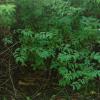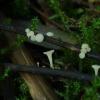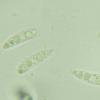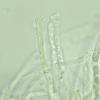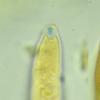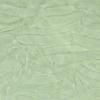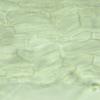
24-02-2026 11:01
Gernot FriebesHi,found on a branch of Tilia, with conidia measur

23-02-2026 11:22
Thomas Læssøehttps://svampe.databasen.org/observations/10584971

29-11-2024 21:47
Yanick BOULANGERBonjourJ'avais un deuxième échantillon moins mat

07-02-2023 22:28
Ethan CrensonHello friends, On Sunday, in the southern part of

19-02-2026 17:49
Salvador Emilio JoseHola buenas tardes!! Necesito ayuda para la ident

19-02-2026 13:50
Margot en Geert VullingsWe found this collection on deciduous wood on 7-2-
White Hymenoscyphus
Juuso Äikäs,
03-08-2020 20:40
The apos were fairly tough and yellowing.
Asci with croziers, IKI+, paraphyses with VBs. If I interpreted correctly, the medullary excipulum is of textura intricata and ectal excipulum of textura prismatica.
Spores:
(15.7) 16.7 - 18.9 (20.5) × (4) 4.3 - 4.9 (5) µm
Q = (3.2) 3.7 - 4 (5.1) ; N = 20
Me = 17.8 × 4.6 µm ; Qe = 3.9
Might someone know what the species could be?
Hans-Otto Baral,
03-08-2020 20:43

Re : White Hymenoscyphus
Well, this is the most comkmon discomycete since about 20 years: H. fraxineus, cause of the ash dieback disease. Differs from H. fraxineus merely by having croziers.
Both on blackened Fraxinus petioles.
Enrique Rubio,
03-08-2020 20:51
Re : White Hymenoscyphus
Hi Zotto
Do you know if H. fraxineus has been found in Spain? I only see H.albidus.
Enrique
Do you know if H. fraxineus has been found in Spain? I only see H.albidus.
Enrique
Juuso Äikäs,
03-08-2020 20:58
Re : White Hymenoscyphus
Ok then, thank you! H. pseudoalbidus is apparently an older name for it. Fraxinus isn't at all common here and I'm not too familiar with it. I thought it would be more tree-like. Or maybe that's some other plant and the petioles came from a nearby tree?
Hans-Otto Baral,
03-08-2020 21:22

Re : White Hymenoscyphus
I am still unaware of Spanish record. Even in Poitou-Charente I am not sure.
Certainly these are Fraxdinus petioles. The transsect should be bilateral-symmetrical (flattened).
Enrique Rubio,
03-08-2020 21:28
Re : White Hymenoscyphus
It seems that Spanish ash trees are strong and still resist the advance of this fungus.
On the one hand I want to see the fungus, but on the other I don't.
Thanks, Zotto.
On the one hand I want to see the fungus, but on the other I don't.
Thanks, Zotto.
Hans-Otto Baral,
03-08-2020 21:35

Re : White Hymenoscyphus
I can hardly believe that. maybe the climate is not good for the fungus, or the Pyrenees form a barrier. But in Croatia it occurs since many years.
Enrique Rubio,
04-08-2020 00:43
Re : White Hymenoscyphus
It was just a joke.
Hans-Otto Baral,
04-08-2020 06:48

Re : White Hymenoscyphus
It is hard to believe but it seems that there is no rapid spread by birds etc. but only by wind via a few 100 m per year. The height of the Pyrenees should not be a reason because in the Alps it occurs up to the subalpine region.
Martin Bemmann,
04-08-2020 10:24

Re : White Hymenoscyphus
And what is worse: it jumps on Oleaceae other then Fraxinus:
as Phillyrea, native to mediterranian countries...
Regards
Martin
Enrique Rubio,
04-08-2020 11:20
Re : White Hymenoscyphus
That's very interesting.
Thank you, Martin.
Thank you, Martin.

